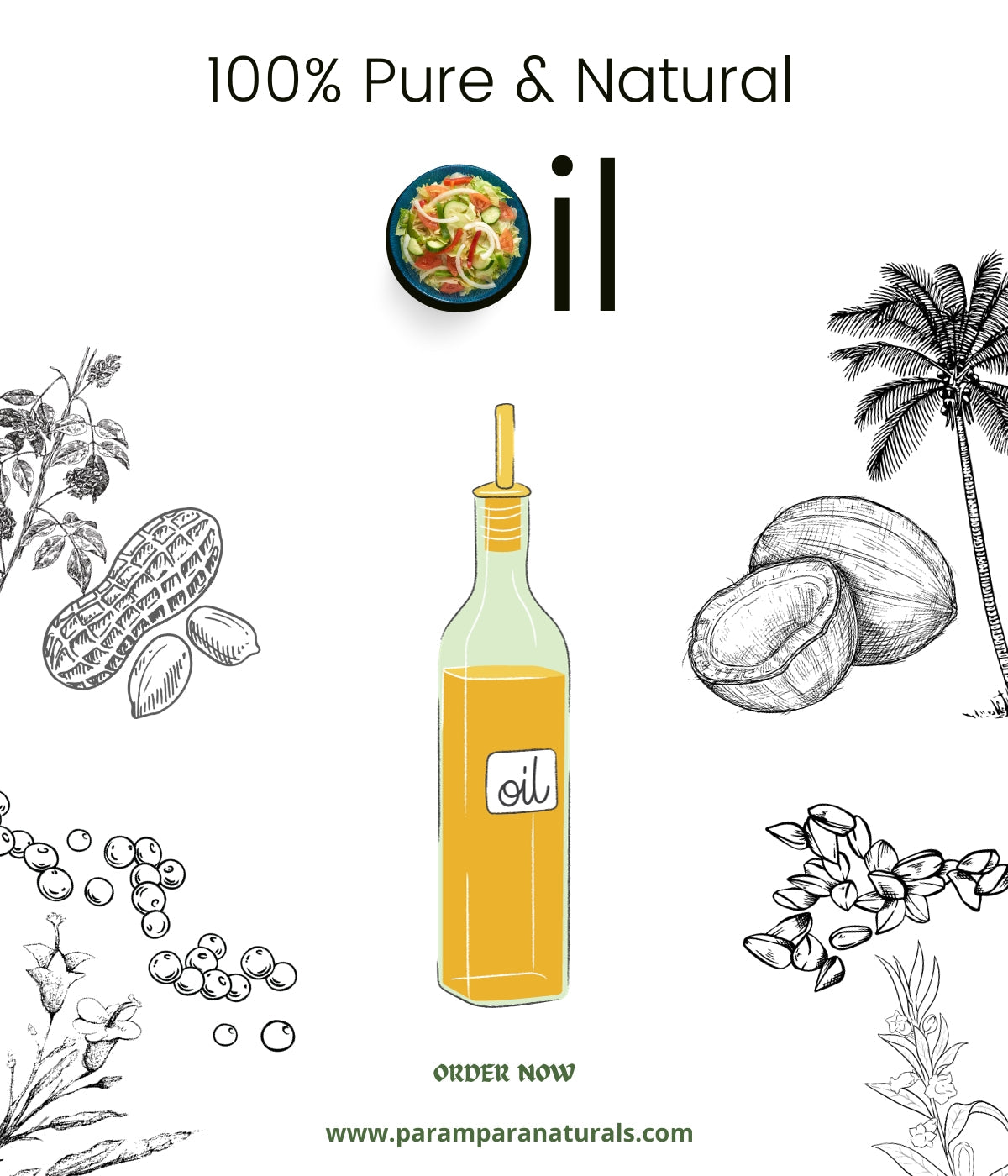Refined Oils means Chemically refined making it not safe to consume
When choosing oils for cooking, it’s not just about taste or cost—it's about the impact on your health. Understanding the difference between refined oil and cold-pressed oil can help you make healthier choices. Both oils are used widely, but they come with different health benefits and risks.
This blog dives deep into the health effects of both oils, helping you understand how each affects your body and well-being. Below, we’ll compare the pros and hazards of both types of oils in a detailed table format.
Health Impact Comparison: Refined Oil vs. Cold Pressed Oil
1. Processing
❌Refined oils undergo extensive chemical and mechanical processing (e.g., heating, bleaching, deodorizing) to remove impurities.
✅Cold-pressed oils are extracted using a mechanical process, keeping the oil raw and free from chemicals or excessive heat.
2. Nutrient content
❌Many nutrients, like vitamins (A, D, E), antioxidants, and polyphenols, are lost during the refining process.
✅Retains a high amount of nutrients, including antioxidants, vitamin E, and omega-3 fatty acids, which are beneficial for your health.
3. Fat composition
❌Rich in omega-6 fatty acids which can promote inflammation when consumed in excess, especially when omega-3s are lacking.
✅Contains a balanced profile of healthy fats—omega-3s, monounsaturated fats, and polyunsaturated fats—which support heart health and reduce inflammation.
4. Trans Fat Formation
❌The refining process can lead to the formation of trans fats, which are known to increase LDL (bad) cholesterol and increase the risk of heart disease.
✅Cold-pressed oils do not contain trans fats, making them healthier for the heart and cardiovascular system
5. Antioxidants & Vitamin Retention
❌Antioxidants and vitamins are destroyed during the refining process, leaving the oil nutritionally depleted.
✅Rich in antioxidants like vitamin E and polyphenols, which help combat oxidative stress and reduce aging.
6. Inflammation
❌Due to the high omega-6 fatty acids and oxidative compounds in refined oils, they can contribute to chronic inflammation, increasing the risk of diseases like heart disease and arthritis.
✅Cold-pressed oils are anti-inflammatory, especially those rich in omega-3 fatty acids, and may help lower the risk of chronic conditions like arthritis, heart disease, and diabetes.
7. Cholesterol Levels
❌Refined oils can raise LDL (bad cholesterol) and lower HDL (good cholesterol), contributing to higher risk of heart disease.
✅Cold-pressed oils can help balance cholesterol levels by raising HDL and reducing LDL, lowering the risk of cardiovascular disease.
8. Risk of Oxidation
❌Due to high heat exposure during refining, refined oils are more prone to oxidation when used for cooking, leading to the formation of free radicals that can harm cells.
✅Cold-pressed oils are more stable and resistant to oxidation, providing a healthier option when used for low to medium-heat cooking or as a salad dressing.
9. Caloric content
❌Refined oils are calorie-dense and, when consumed in excess, can lead to weight gain, contributing to conditions like obesity and metabolic disorders.
✅Cold-pressed oils are similarly calorie-dense, but the healthier fats they provide make them a better option for long-term health when consumed in moderation.
10. Environmental Impact
❌The refining process often involves chemical solvents (like hexane), which can harm the environment during production.
✅Cold pressing is more eco-friendly, as it doesn’t require chemicals or high energy usage, making it a greener option for both health and the planet.
11. Shelf Life
✅Refined oils have a longer shelf life due to their high stability, but this also means they may contain additives or preservatives.
❌Cold-pressed oils have a shorter shelf life as they are more prone to spoilage due to their natural composition, requiring more careful storage.
Now you know what’s healthy
If you care about your long-term health, cold-pressed oils are the superior option. Despite their shorter shelf life and higher cost, their nutritional benefits, including antioxidants, healthy fats, and heart-health benefits, far outweigh the risks associated with refined oils.
Refined oils, while more affordable and versatile for high-heat cooking, come with significant health hazards such as increased inflammation, cholesterol imbalances, and a greater risk of heart disease.
Parampara Naturals cold-pressed oils is best for making Satvik Bhojan which is when possible, especially for low-to-medium heat cooking or as a salad dressing. Choose refined oils sparingly, as they may pose long-term health risks.


